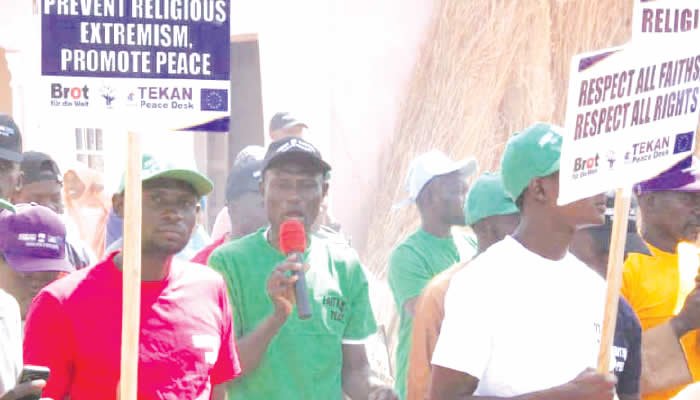ActionAid Nigeria and the Partnership Against Violent Extremism (PAVE Network) have brought together community stakeholders across Kano State to develop locally-driven solutions for combating violent extremism in the state.
The collaborative initiative, part of the System and Structure Strengthening Approach Against Radicalization to Violent Extremism (SARVE III) project, aims to build community resilience through inclusive approaches tailored to local contexts and solutions in preventing and countering violent extremism.
Speaking during a two -day community mapping and stakeholders validating meeting at Tahir Guest Palace in Kano, ActionAid Nigeria Project Officer for SARVE III, Jamila Musa, explained that the engagement is focused on reviewing emerging trends and challenges related to violent extremism while sharing best practices and innovative strategies for effective prevention and counter-extremism interventions.
“We conducted research in the communities where the project is being implemented and identified various issues related to violent extremism.
“We are here to validate those findings and develop a state action plan that reflects the specific contexts and peculiarities of each community,” she stated.
Read also:
- ActionAid, WACHEF, others launch school feeding programme in Taraba
- ActionAid calls on government to support sustainable food systems for healthier future
- FG to expand homegrown school feeding program, targets 20m students
She explained that the SARVE III project is currently being implemented across six local government areas of Tudun Wada, Bebeji, Gwarzo, Bichi, Nassarawa, and Gwale, with two communities targeted in each local government area.
In her remarks, Kano PAVE Network Chairperson, Halima Suleiman, emphasized that the exercise prioritizes community-generated solutions in formulating action plans for both local governments and the state level.
She maintained that the exercise will help in having sustainable solutions to preventing violent extremism, especially when the recommendation made by the people are being prioritised.
Stakeholders at the meeting included community leaders, women and youth group representatives as well as security representatives from the police and civil defence officers among others.






